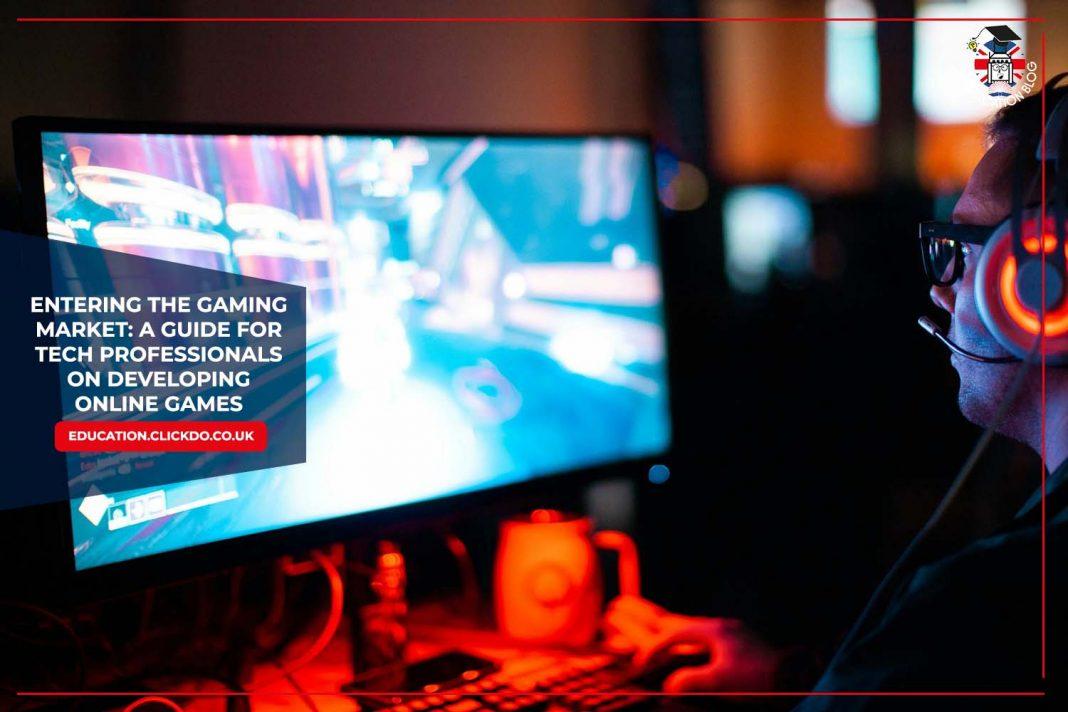If you’re studying to become a game developer or designer, you’ve likely learned that creating different types of games requires specialized skills. When it comes to developing casino games, while you have the freedom to choose the type of game, there are critical responsibilities involved.
This involves managing real money transactions and ensuring accurate RTPs (Return to Player) along with rigorous RNGs (Random Number Generators) testing. It also entails continuously addressing security concerns, including cyber-attacks and breach attempts.
With the exponential growth of iGaming and the anticipated legalization of casino games in many countries, the industry is ripe for tech professionals looking to enter the market. The online gambling sector is projected to hit $97 billion by 2025, creating vast opportunities for developers. But what kind of skills are needed to become a casino game developer?
Understanding the Audience

First and foremost, understanding the casino gamer will help you navigate through the set of skills needed to create a successful game. They are not very different from the traditional iGamer, indeed.
According to research by KTO, one of the biggest online casinos in Brazil, their usual gamers are mostly young, tech-savvy, and deeply integrated into the digital world, favoring mobile gaming experiences. Their interests are diverse, spanning from traditional games like online roulette games to modern options such as sports betting and casual mobile games.
For these players, the primary motivation is entertainment, with the thrill of the game taking precedence over financial gain. Demographically, the average gamer is around 39 years old, with the majority aged 25 to 40.
Men predominantly engage in sports betting, but women’s participation in non-sports games is on the rise. The majority of gamers hail from higher-income urban households, with most having at least a high school education; nearly half are stably employed or own businesses, while others depend on family income or pensions.
The Developer’s Roadmap
Casino game development involves the use of several programming languages, each suited to different aspects of game creation. C++ is commonly used for its speed and efficiency in game engines and high-performance games.
JavaScript and HTML5, commonly used in mobile app development, are popular for creating browser-based casino games. Java is the primary choice for Android mobile game development. C# is utilized with Unity for cross-platform projects, Python for scripting and AI, and PHP in conjunction with Node.js for server-side development and database management.
You can often choose languages you’re more comfortable or familiar with, but these suggestions will provide a general framework and a safe environment to start working with real-money games. Developing casino games is a complex, multi-stage process that requires a diverse set of skills. Here’s a breakdown:
- Research and planning: this phase involves conducting market research to understand player preferences and trends. It also includes planning the game’s concept, mechanics, and target audience. This foundational step is crucial for ensuring that the game will meet market demands.
- Game design: designers create the visual elements, including graphics, animations, and the user interface. They also develop the game’s narrative and rules, ensuring an engaging user experience.
- Development: programmers bring the design to life by coding the game. This stage involves implementing the mechanics, ensuring smooth gameplay, and integrating features such as random number generators (RNGs) for fairness.
- Testing and refinement: once the game is developed, it undergoes rigorous testing to identify bugs and performance issues. This phase includes gathering feedback to make necessary adjustments and improvements.
- Launch and maintenance: after testing, the game is launched to the market. Post-launch, developers monitor performance, release updates, and address any issues to keep the game running smoothly and maintain player engagement. The games are also periodically audited to make sure RTPs are working properly and fairly.
Platforms for Casino Game Development

Casino games can be developed for various platforms, including mobile apps, web browsers, and desktop applications. The choice of platform depends on your target audience and business strategy. Here’s a quick overview:
- Mobile apps: these are ideal for targeting users who prefer gaming on the go. Mobile gaming has exploded in popularity due to its convenience and accessibility, and is usually ideal for games with simple interfaces, like slots or poker. Sports betting also works very well on mobile since it allows players to place wages at any time before the match starts.
- Web browsers: browser-based games are perfect for delivering a comprehensive casino experience, accessible from any device with an internet connection.
- Desktop applications: while less common today, desktop apps are still used, particularly in regions with strong broadband infrastructure.
Slots, Roulette and Other Online Casino Game Types
When developing casino games, it’s crucial to understand the different game types and their appeal to players. Like any form of entertainment, you can opt for timeless classics or tap into current trends.
Slots are the most popular games in casinos today, presenting developers with numerous opportunities. Balancing the creation of trendy games with enduring classics like roulette and blackjack, which remain staples in the gaming industry, ensures a diverse portfolio that appeals to a wide audience.
- Slots: digitized versions of traditional slot machines are hugely popular. They are favored for their simplicity and attractive graphics.
- Table games: games like poker, blackjack, and roulette fall into this category. These games require strategy and are popular among players who enjoy skill-based gaming.
- Live dealer games: these aim to replicate the experience of a physical casino with real-time interaction and human dealers. These games, including online roulette games, are generally popular as they combine the convenience of online gaming with the authenticity of live play.
- Provably fair games: these include games like crash, dice, and plinko, which allow players to verify the fairness of each outcome. They are particularly popular in regions with a strong demand for transparency in gaming.
The Role of Technology in Casino Game Development

Technological advancements have been instrumental in transforming the casino gaming industry, driving innovation and enhancing player experiences. Key technologies such as Artificial Intelligence (AI) are now used to personalize gaming experiences, predict player behavior, and improve customer service through chatbots.
However, it’s important to note it still needs the human touch to work properly. Chatbots need constant interaction with support teams in order to offer valuable answers and understand users’ demands and doubts.
Blockchain technology ensures transparency and security in transactions, especially in provably fair games, where players can verify the fairness of each outcome. Additionally, cloud gaming has enabled seamless gameplay across various devices without the need for high-end hardware.
The integration of cryptocurrencies as a payment method has also provided players with more options and security in their transactions. These technologies are not just trends; they are reshaping how casino games are developed, delivered, and experienced, ensuring the industry remains dynamic and forward-thinking.
While the casino game development market presents significant opportunities, it also poses several challenges. Successfully navigating regulatory environments, especially in newly legalized and high-demand markets like Brazil and certain U.S. states, requires meticulous attention to compliance and adherence to legal standards. Furthermore, the highly competitive nature of the industry necessitates constant innovation and the ability to swiftly adapt to emerging technologies, ensuring that developers remain ahead.
However, for tech professionals with a solid background in development, these challenges present opportunities to innovate and lead in a burgeoning industry. By staying informed about market trends, leveraging advanced technologies, and adhering to best practices, developers can create successful and profitable casino games.
Author Profile

- Shirley Owen is a blogger and writer who enjoys writing blogs on education, technology and general news. An avid reader, she follows all the latest news & developments to report on them through her articles.
Latest entries
 language learningJune 18, 2025From Beginner to Fluent: Your 6-Month English Learning Plan
language learningJune 18, 2025From Beginner to Fluent: Your 6-Month English Learning Plan early learningMay 16, 2025Boosting Young Brains: The Power of Puzzles in Child Development Explained
early learningMay 16, 2025Boosting Young Brains: The Power of Puzzles in Child Development Explained ExamsMay 1, 2025Mastering A-Level Economics: A Strategic Guide to Academic Excellence
ExamsMay 1, 2025Mastering A-Level Economics: A Strategic Guide to Academic Excellence student lifeApril 24, 202512 Best Study Spots in Liverpool Revealed
student lifeApril 24, 202512 Best Study Spots in Liverpool Revealed







